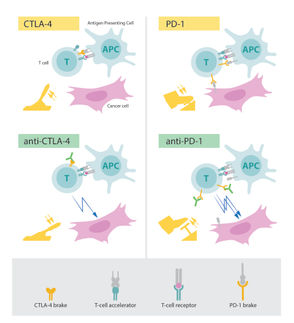Novartis drug Tasigna approved in Switzerland after fast-track review for treatment of patients with newly diagnosed Ph+ CML
Advertisement
Swissmedic has granted approval for Tasigna® (nilotinib) 300 mg twice daily for the treatment of adult patients with newly diagnosed Philadelphia chromosome-positive chronic myeloid leukemia (Ph+ CML) in chronic phase. Tasigna is the first new therapeutic option for newly diagnosed patients since the introduction of Glivec® (imatinib)*, providing a major advance for patients with this blood cancer.
The approval of Tasigna came after being designated for a fast track review by Swissmedic based on positive findings at 12 months from a pivotal Phase III trial, ENESTnd, demonstrating superiority to the standard of care Glivec in achieving molecular and cytogenetic response and delaying cancer progression. In June of this year, these findings were published in The New England Journal of Medicine and 18-month median data were presented at the 2010 annual meeting of the American Society of Clinical Oncology. The US Food and Drug Administration approved Tasigna in the first-line indication in June. Other regulatory submissions are under review worldwide.
"Switzerland was the first country to approve Tasigna in 2007 for its original indication as a second-line treatment after Glivec. Now, with this approval of Tasigna as a first-line treatment, we are pleased to offer newly diagnosed CML patients a new and even more effective option for delaying disease progression," said Hervé Hoppenot, President, Novartis Oncology.
Tasigna is a potent and selective inhibitor of the Bcr-Abl protein that causes production of cancer cells in Ph+ CML. It is also active against a broad spectrum of Bcr-Abl mutations associated with resistance to Glivec.
In its pivotal head-to-head trial, Tasigna surpassed Glivec in key measures of treatment efficacy, as has been previously reported. Tasigna eliminated Bcr-Abl faster than Glivec, resulting in lower rates of cancer progression even after only 12 months of therapy. Deep reduction of Bcr-Abl, known as a major molecular response, is considered to be an important therapeutic milestone associated with good long-term outcomes for patients with Ph+ CML. Treatment with Tasigna led to higher rates of both major molecular response and complete cytogenetic response (elimination of the Philadelphia chromosome that is the hallmark of the cancer) compared with Glivec at 12 months.
The randomized, open-label, multicenter ENESTnd trial (also known as Evaluating Nilotinib Efficacy and Safety in Clinical Trials of Newly Diagnosed Ph+ CML Patients) compared the efficacy and safety of Tasigna versus Glivec in adult patients with newly diagnosed Ph+ CML in chronic phase. It is the largest global randomized comparison of two oral therapies ever conducted in newly diagnosed Ph+ CML patients in chronic phase.
At 12 months, two patients on the nilotinib arm progressed to either accelerated phase or blast crisis while 11 patients on the imatinib arm progressed to either accelerated phase or blast crisis. In the study, Tasigna was well tolerated. Fewer patients discontinued due to adverse events from the Tasigna 300 mg twice daily arm of the study compared to the Glivec 400 mg once daily arm. The ENESTnd trial is ongoing.

























































